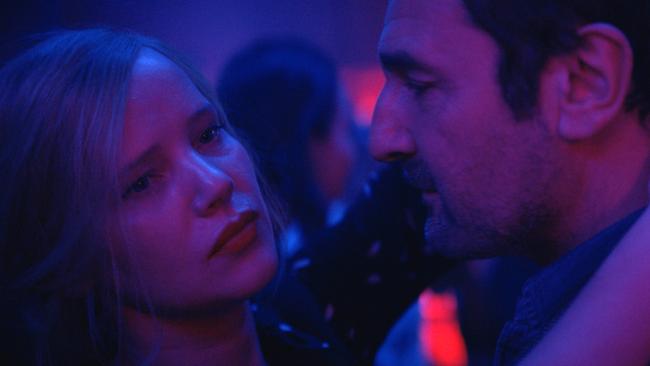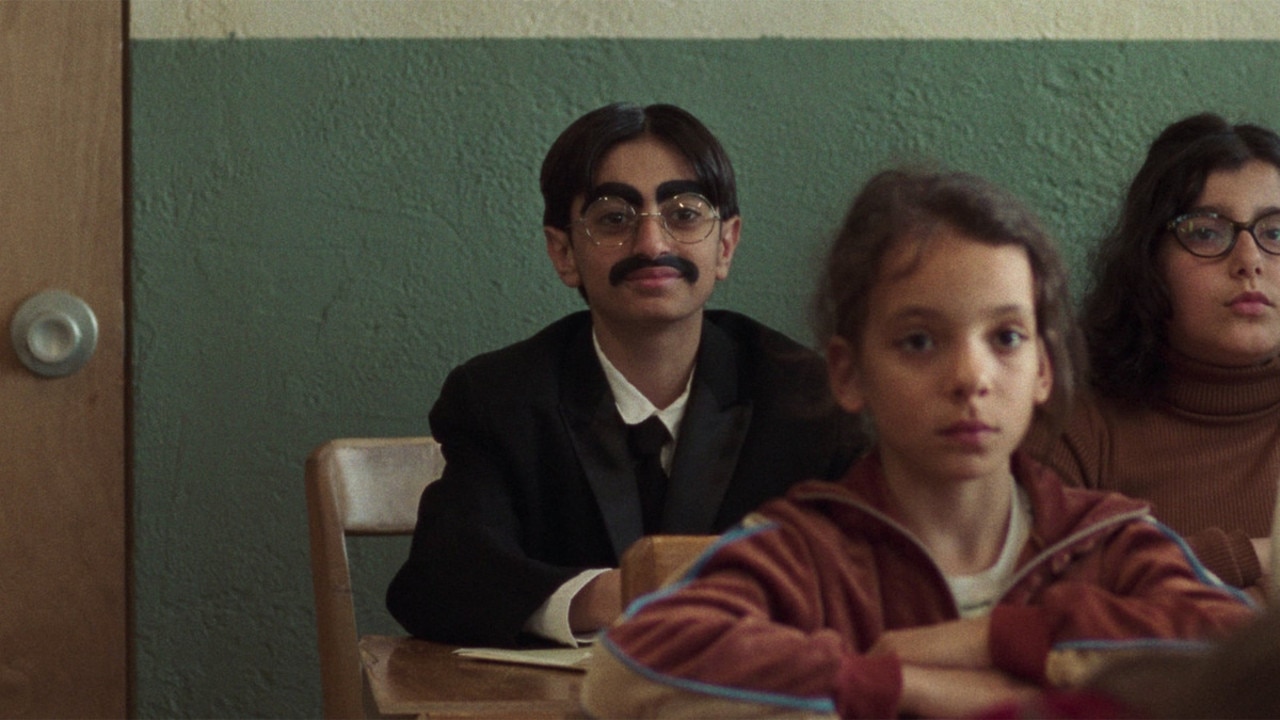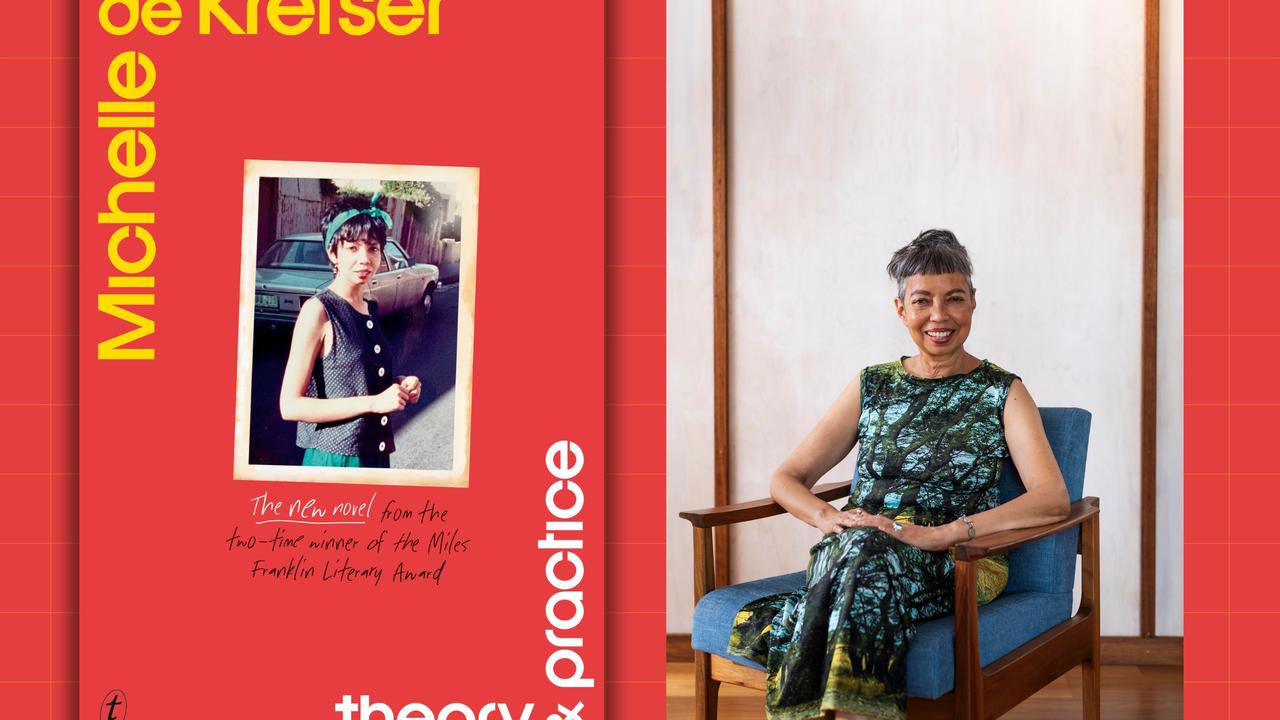Bones and All an indigestible film about teenage cannibals
An 18-year-old girl chomps off the finger of one of her pals at a sleepover. And that’s just the beginning.

Bones and All (MA15+)
In cinemas
★★½
Bones and All is a road movie involving a pair of outcast teenage cannibals. If that sounds like an indigestible (sorry!) combination, it is. Italian director Luca Guadagnino has demonstrated, in his previous films (I am Love, 2009; A Bigger Splash, 2015; Call Me by your Name, 2017 and his re-make of Dario Argento’s classic, Suspiria, 2018) that he’s interested in both romance and horror, and here he attempts to combine the two in an adaptation of a book by Camille DeAngelis (written for the screen by the director’s regular script collaborator, David Kajganich). But Bones and All, though it has moments of interest, falls firmly between two stools: it’s not horrific enough to please the monster movie fans and it’s too slow and tenuous (and, at two hours and 10 minutes, far too long) to grab the teen market that constitutes star Timothee Chalamet’s fanbase.
Unfolding in the post-Reagan era of the late 1980s, the film opens in Virginia where 18-year-old Maren (Taylor Russell) lives with her dad (Andre Holland), who locks her in their trailer home at night. You soon see why: when she escapes to take part in a sleepover with girlfriends she winds up chomping off the finger of one of her pals. Her father’s reaction is to leave town before the police show up, but soon after they move into a house in Maryland Dad abandons Maree, leaving behind an audiotape in which he has recorded her past history – she inherited the cannibal gene from her mother – and her birth certificate.
Determined to track down her mother, Maren heads off by bus but during a stopover in Ohio she encounters the rather sinister Sully (Mark Rylance), another cannibal who claims he could smell her a mile off.
Sully is helpful for a while, but he’s a sinister and controlling presence – Rylance, wearing a pigtail, a fedora with a feather in it and sporting a Southern accent, gives by far the film’s best performance – and Maren soon escapes him to encounter a cannibal nearer her own age, Lee (Chalamet) in an Indiana supermarket.
The film boasts an interesting cast: Chloe Savigny plays Maren’s deranged mother, Jessica Harper her grandmother, Michael Stulhbarg and David Gordon Green as a pair of rednecks. But the pacing is far too languid and the scenes of cannibalism ugly though not scary. As the young lovers, Chalamet and Russell do their best with the uncompelling material.
Kompromat (M)
In cinemas
★★★★
Many First World countries feel it’s important to bring their culture to the places where they have embassies and consulates. Germany has its Goethe Institute, Italy its Dante Alligheri Society, the UK its British Council and France has the Alliance Francaise, which in Australia is beloved, among other things, for its work in presenting the annual French film festival in many cities.
But cultural organisations such as these have to be careful what sort of culture they bring to some of the more conservative countries and Kompromat, which is “loosely based on real events”, depicts the nightmare that enfolds the director of the Alliance Francaise in Irkutsk, Siberia, when the local officials are unimpressed with an avant-garde stage presentation.
The film opens with a frantic chase through a birch forest, then flashes back five months. Mathieu Roussel (Gilles Lellouche) has recently been appointed head of the Alliance in this Siberian city. He and his wife, Alice (Elisa Lasouski), are adjusting to life in the chilly outpost, though their marriage is foundering because she’s had an affair. Mathieu is devoted to Rose, his small daughter. The AF has invited a progressive dance company to perform at a gala presentation for local dignitaries, but seeing the male dancers kissing as part of the performance is too much for the local officials – many of whom walk out, and some of those who stay make it clear that they were offended by the “degenerate” dance. At the after party, Mathieu dances with Svetlana (Joanna Kulio), the wife of Sasha (Danila Vorobyed), who lost a leg fighting in Chechnya and whose father, Dmitri Rostov (Mikhail Gorevoy), is the local FSB (formerly KGB) chief.

Not long after the gala, armed men raid Mathieu’s home and drag him off to prison. He is accused of child pornography and of abusing his daughter. The tough prison inmates don’t take kindly to child molesters and Mathieu is further shattered when Alice testifies against him before returning to France with Rose. His only friend is Svetlana, who sends him bags of food and helps him when he’s released into home custody with an ankle bracelet to await trial. His lawyer urges him to escape, telling him he will definitely be found guilty. These events have, of course, troubled the French diplomats in Moscow who don’t want to risk a schism in Franco-Russian relationships.
How much of this is actually true who knows; but it’s a gripping yarn and well told, though towards the end some of the relationships don’t entirely convince. Despite this, the film works as both a thriller and a political statement. The moral: be careful what kind of art you choose to show in some of the more conservative outposts of the world.
Splice Here: A Projected Odyssey (tbc)
In cinemas
★★★½
When I was in my early teens, I went to a suburban cinema in the English city of Birmingham to see James Dean in East of Eden (1954). After the film, I was fortunate to meet the projectionist in the lobby, asking him about his work. He was extremely kind and took me up to the projection room to show me how everything functioned, even giving me a discarded clip of 70mm film, which I still have to this day.
Splice Here, an affectionate if overlong documentary by Melbourne movie enthusiast Rob Murphy, evokes the same sort of obsessive enthusiasm for cinema and film that I recognise in myself. Murphy is a fan of the old-style 35mm projectors and the magic of celluloid film.
He was too young to see the original three-projector Cinerama films, starting with This is Cinerama (1952), which came to Melbourne’s Plaza cinema in 1958. I was lucky enough to see this film and all the early Cinerama productions, including How the West Was Won (1962), at the Casino cinema in London. Murphy is fascinated by this complex wide-screen system, and he also explores other wide-screen landmarks, such as CinemaScope and vistaVision. He interviews a proud group of veteran 35mm projectionists, and notes the introduction in the 1970s of multiplexes, which resulted in the demise of the two-projector change-over system, and the move to digital in the early 2010s. He laments the destruction of nitrate prints of beloved films, visits archives in Canberra and London, interviews the celebrated American 70mm practitioner Douglas Trumbull and movie buff Leonard Maltin.
This is all close to my heart, though probably a bit too rarefied for the average filmgoer these days. Murphy, not surprisingly, laments the end of film and the introduction of computerised digital copies (DCPs).
His film climaxes in the Sun Cinema, Melbourne, where he helps re-create 70mm for a screening of The Hateful Eight, at which Quentin Tarantino makes a typically enthusiastic personal appearance. Splice Here actually ends with Murphy successfully re-creating three-projector Cinerama and watching, wide-eyed, the spectacular rollercoaster ride that opens This is Cinerama on a 146-degree curved screen.
All movie buffs hope that films screened on celluloid haven’t entirely disappeared, and that seeing some of the most celebrated cinema productions on film may yet become a regular niche experience. In the meantime, Murphy lauds the collectors who saved some key films, while deriding the major companies that destroyed them.
At almost two hours, the film overstays its welcome, but Murphy can be forgiven for his excesses. As Tarantino says to him: “I was moved by your passion and act of love.”




To join the conversation, please log in. Don't have an account? Register
Join the conversation, you are commenting as Logout